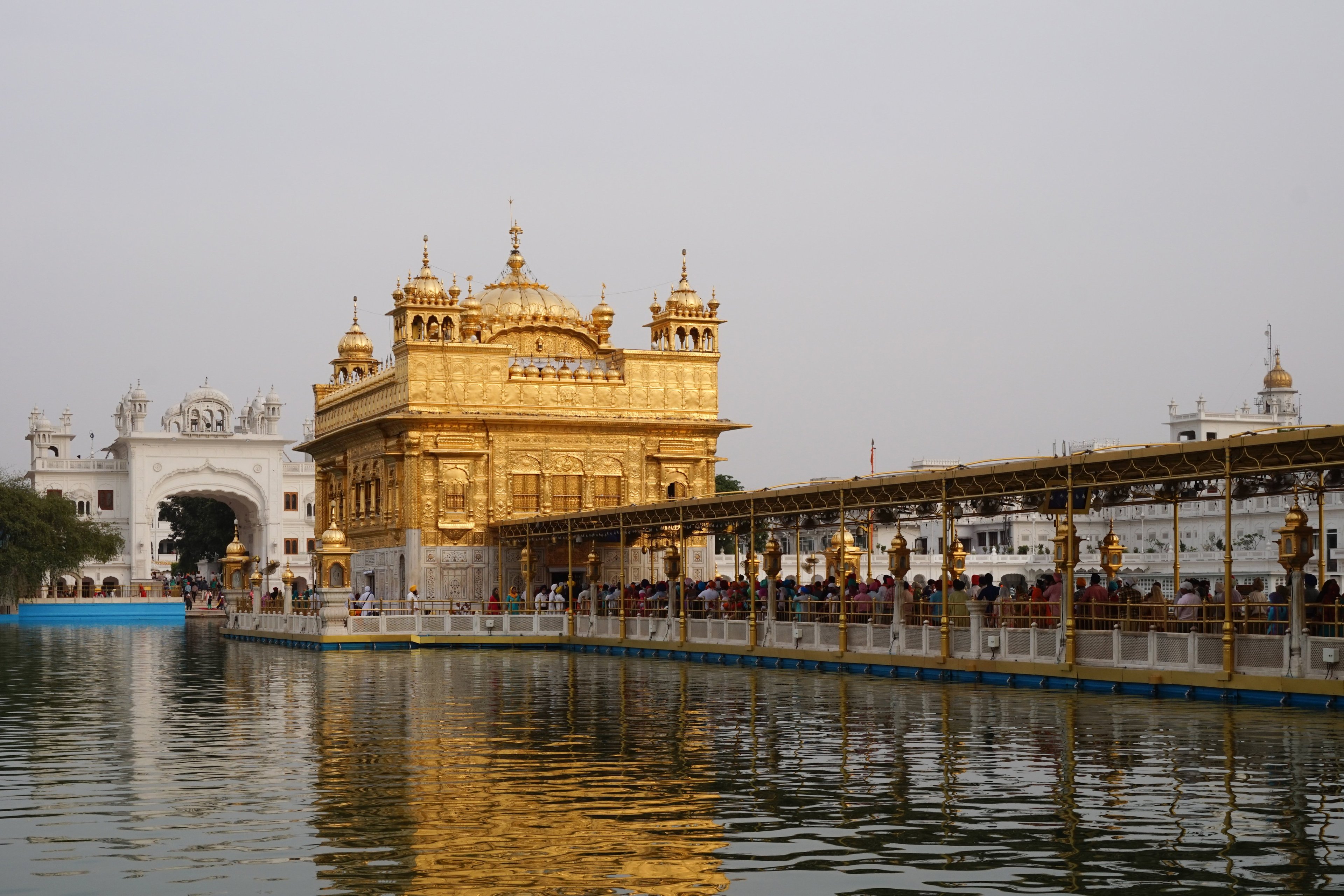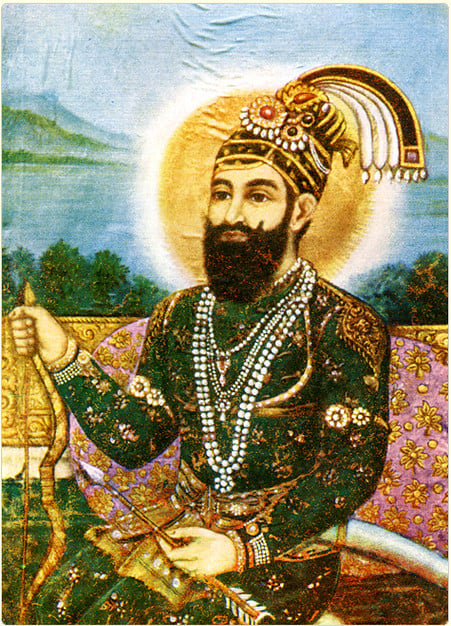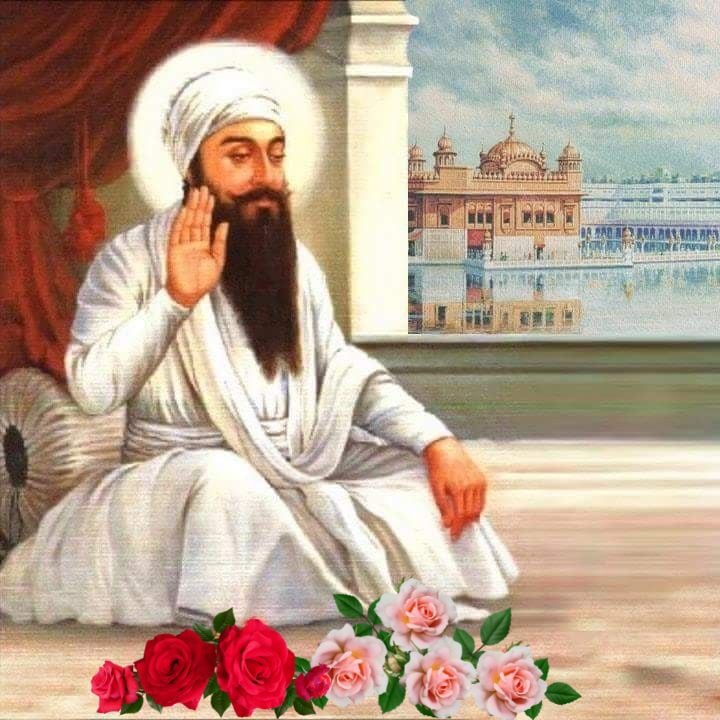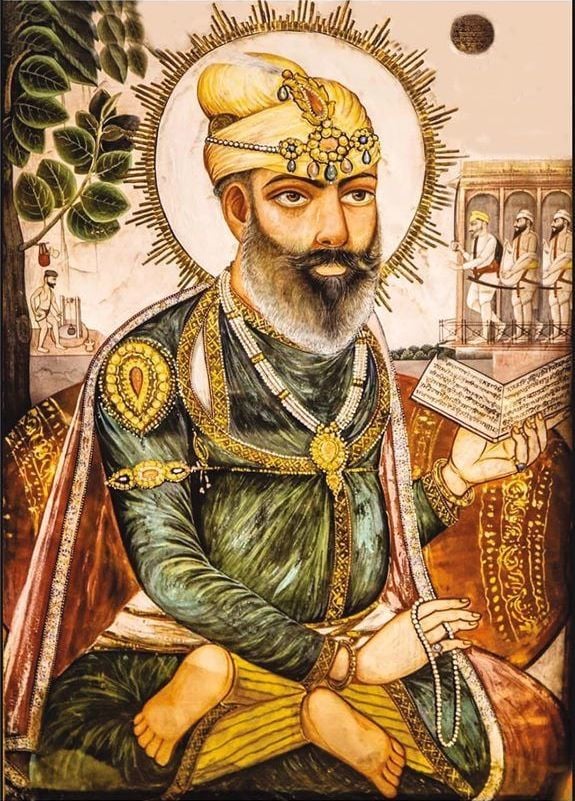Sikh Festivals (AQA GCSE Religious Studies A): Revision Note
Exam code: 8062
What are the origins of Vaisakhi?
Vaisakhi is the Sikh harvest festival and is usually celebrated on the 13th or 14th of April
It shows gratitude and thanks for the harvest of food and crops that year
It also involves prayers for future crops
Vaisakhi became significant following the actions of Guru Gobind Singh and the formation of the Khalsa in 1699
Guru Gobind Singh called Sikhs to Anandpur Sahib on Vaisakhi day
He tested their faith by asking for volunteers willing to sacrifice their lives
He initiated the first five Sikhs (the Panj Piare, which translates to “Beloved Five”) into the Khalsa, a community of committed, baptised Sikhs
He also introduced:
The 5 Ks (Kesh, Kara, Kanga, Kachera, Kirpan)
The names Singh (for men) and Kaur (for women)
From that day, Sikhs became a distinct community
During Vaisakhi, many Sikhs remember solemn occasions from the past when Sikhs were persecuted
How is Vaisakhi celebrated?
The celebrations at Vaisakhi include processions and services held in the gurdwara
Also at this time, committees for the gurdwara are elected and the Nishan Sahib is taken down and replaced with a new flag, which is donated by the sangat
The flagpole is taken down and washed in milk and yoghurt and then water to symbolise cleanliness and purity

In India, as well as including prayers for crops, Vaisakhi is celebrated through:
Large fairs
Sporting competitions
Bhangra dancing and folk music
During Vaisakhi, some Sikhs travel to Anandpur, where Guru Gobind Singh formed the Khalsa
They may also travel to the Harmander Sahib (Golden Temple) in Amritsar to celebrate

Bernard Gagnon CC by-sa 1.0
Why is Vaisakhi significant within Sikhism?
There are many reasons why Vaisakhi is an important celebration for Sikhs
It commemorates the birth of the Khalsa, which marks a turning point in Sikh identity
It is a time to celebrate the values of the Khalsa, including honesty, equality, service and bravery
At this time, Sikhs reflect on whether they are living according to Guru Gobind Singh’s ideals
It is an opportunity to strengthen the Sikh community (sangat)
Gurdwaras hold special services, processions (Nagar Kirtans) and Akhand Path readings
It is a time for collective worship, celebration and sewa (service)
It is also a time to celebrate unity and equality, which are very important within Sikhism
The Panj Piare came from different castes and backgrounds
Vaisakhi reminds Sikhs of equality and shared identity
What are the origins of Divali?
Divali is a festival that is celebrated throughout India by both Hindus and Sikhs
It is a festival of lights and symbolises good overcoming evil
For Sikhs, it is also a celebration of freedom
It is usually celebrated in October or November, and it lasts five days
The origins of Divali in Sikhism began with the release of Guru Hargobind Ji in 1619
Guru Hargobind, the sixth Sikh Guru, was unjustly imprisoned by the Mughal Emperor Jahangir
When the Emperor agreed to release him, Guru Hargobind refused to leave without the 52 innocent Hindu princes who were also imprisoned
The Emperor agreed, saying those who could hold onto the Guru’s cloak could go
Guru Hargobind had a special cloak made with 52 tassels, allowing all of them to be freed
Guru Hargobind returned to Amritsar on Divali night, and the Golden Temple was lit up with lamps in celebration
This became known as “Bandi Chhor Divas” or the “Day of Liberation”
How is Divali celebrated?
Divali is celebrated in several ways:
The Akand Path is held
Street processions are organised
Firework displays
Homes are spring-cleaned and decorated with lamps
New clothes are worn
As well as these ways, in India, Divali is celebrated through:
Lighting bonfires in towns and villages
Decoration of the Golden Temple and the surrounding buildings with thousands of lights
Pilgrimage of many Sikhs to the Golden Temple to join the celebrations
Why is Divali significant within Sikhism?
Divali is important for Sikhs for several reasons, because it:
Allows Sikhs to remember the bravery of Guru Hargobind, who was imprisoned with 52 Hindu princes for political reasons
Remembers the martyrdom of Bhai Mani Singh, who was the granthi at the Harmander Sahib (Golden Temple) who transcribed the final version of the Guru Granth Sahib
Celebrates how Sikh leaders have supported freedom and equality
Helps Sikhs to remember the oneness of humanity and the importance of fair treatment for all people
Celebrates light over darkness and the victory of good over evil
Is an opportunity for Sikhs to celebrate in gurdwaras, which they decorate with lights, and where they hold prayers (kirtan) and serve langar
What are Gurpurbs?
Gurpurbs are festivals that celebrate the lives of the Gurus
The word Gurpurb means “Guru’s celebration”
Gurpurbs may mark a Guru’s birthday, the date they became a Guru (in the case of the Guru Granth Sahib) or their date of death
These events help Sikhs remember, honour and reflect on the teachings and sacrifices of the Gurus
The tradition of Gurpurbs began with the early Sikh community, especially during and after the lives of the Ten Gurus
The most important Gurpurbs
The birthday of Guru Nanak, the founder of Sikhism, is usually celebrated in October or November
This was one of the earliest Gurpurbs to be celebrated by the Sikh community
It originated shortly after Guru Nanak’s death in 1539, when his followers began holding remembrance gatherings
Guru Gobind Singh’s birthday celebrates the tenth Guru, who founded the Khalsa in 1699
During this Gurpurb, Sikhs reflect on his courage, leadership, and defence of justice and equality

CC by-sa 1.0
Guru Arjan Dev’s martyrdom commemorates the fifth Guru, who was martyred in 1606 for refusing to give up his faith
This is a powerful reminder of the struggles Sikhs have faced for religious freedom

CC by-sa 1.0
Guru Tegh Bahadur’s martyrdom remembers the ninth Guru, executed in 1675 for protecting religious freedom (particularly for Hindus)
He is honoured for his self-sacrifice and defence of human rights

CC by-sa 1.0
How are the Gurpurbs celebrated?
The Gurpurbs are celebrated by reading the Sikh holy book, the Guru Granth Sahib, continuously from beginning to end
This is done by a team of Sikh men and women, each reading for two to three hours over 48 hours
It begins two days before, and ends early on the morning of, the Gurpurb
This reading is called an Akhand Path
Nagar Kirtan
On the day of the Gurpurb, or not long after, there may be a street procession known as a Nagar Kirtan
This is led by five people representing the original Panj Piare, who form an escort for the Guru Granth Sahib
The holy book is carried in honour on a decorated vehicle, followed by singers, musicians and even teams of people demonstrating the martial art of swordsmanship
Celebrations in gurdwaras
Gurdwaras are decorated with flowers, flags and lights
Sikhs gather to sing, pray and eat together
On the morning of the anniversary, celebrations begin early, at around 4.00 or 5.00 am, with hymns (kirtan) sung from the Guru Granth Sahib, poems recited in praise of the Gurus, and lectures delivered on Sikhism
As is the case every day, Karah Prasad is blessed and served, and the congregation shares a meal in the langar
How are the Gurpurbs celebrated differently in the UK compared to India?
Gurpurbs are celebrated in both India and the UK, but there are some differences in how the celebrations take place
Gurpurbs in India are celebrated on the actual anniversary of the event they celebrate
Schools are often closed for some of the Gurpurbs, but in the UK, the festivals are often celebrated at the weekend
A Gurpurb is celebrated more publicly and nationally, especially in Punjab, where it is often a public holiday
Streets, towns and cities are decorated; celebrations are often much larger in scale than in the UK
Processions (Nagar Kirtans) are huge and vibrant, with thousands participating
Decorated floats carry the Guru Granth Sahib, with music, martial arts displays (Gatka), and hymns sung by the crowd
Akhand Path, kirtan, langar and light displays take place at the Golden Temple (Amritsar) and other gurdwaras
Some communities light oil lamps (diyas) and use fireworks
Gurpurbs in the UK are normally community-based celebrations, particularly in cities such as London, Birmingham and Leicester, where there are larger Sikh communities
They are held mainly within local gurdwaras and Sikh centres
They still include Akhand Path, kirtan and langar, but usually on a smaller scale than in India
Nagar Kirtans do take place in cities, often in collaboration with local councils and police
These are more controlled and regulated, due to UK laws around road closures and noise
Some gurdwaras use Gurpurbs to educate others about Sikhism
Events might include school visits, interfaith services or talks on Guru teachings, especially in multicultural areas
Worked Example
Explain two reasons why Gurpurbs are important in Sikhism
[4 marks]
Answer:
Gurpurbs help Sikhs remember the lives and teachings of the Gurus, such as Guru Nanak and Guru Gobind Singh. Celebrating their birthdays inspires Sikhs to follow their example and stay true to Sikh values like equality and service [2 marks]
Gurpurbs bring the Sikh community (sangat) together for worship, processions and langar. This strengthens unity and allows Sikhs to practise sewa (selfless service), as taught by the Gurus in the Guru Granth Sahib [2 marks]
Examiner Tips and Tricks
Practise responses relating to this topic and all of the question variations
1-mark questions would just require a short definition of a Gurpurb
2-mark questions may be looking for two examples of Gurpurbs or ways they are celebrated
4-mark questions may ask for two contrasting ways in which Gurpurbs are celebrated in India and the UK, with an explanation
5-mark questions may require two reasons why Gurpurbs are important for Sikhs, and you would need to include Sikh beliefs or teachings
12-mark questions will ask you to evaluate a statement (e.g. “Gurpurbs are the most important Sikh festivals”). Your answer should include arguments for and against, examples, teachings and a conclusion

Unlock more, it's free!
Was this revision note helpful?
